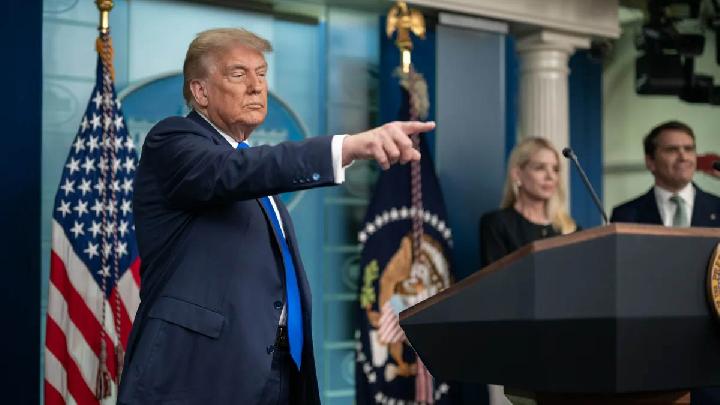TEMPO.CO, Jakarta – Several Asian countries have offered to increase purchases of U.S. liquefied natural gas (LNG) in trade negotiations with the administration of Donald Trump. The move is seen as an attempt to ease trade tensions and avoid further tariff hikes.
However, analysts have warned that this strategy could undermine long-term climate goals and energy security in the region.
According to ABC News, LNG purchases have become a top concession offered by Asian nations during talks with Washington over Trump’s sweeping import tariffs. Vietnam’s prime minister, for example, emphasized the need to buy more of the super-cooled fuel.
In May, the Vietnamese government signed a deal with a U.S. company to develop a gas import hub. Japan’s largest power company, JERA, also agreed to a new 20-year contract last month to import up to 5.5 million metric tons of U.S. LNG annually starting around 2030.
While U.S. efforts to boost LNG exports to Asia began before Trump took office, his administration’s push for favorable trade deals has accelerated the trend.
Liquefied natural gas is natural gas cooled into liquid form for easier storage and transport. It is used for household heating and cooking, industrial processes, and transportation.
The U.S. president has promoted a $44 billion Alaska LNG project that would deliver gas from Alaska’s North Slope to a liquefaction plant in Nikiski, Southcentral Alaska, targeting Asian markets while bypassing the Panama Canal.
Trump has discussed the Alaska LNG partnership with South Korea, while Thailand and the Philippines have also shown interest. India is reportedly considering scrapping import duties on U.S. energy shipments to help reduce its trade surplus with Washington.
“Trump has put pressure on a seeming plethora of Asian trading partners to buy more U.S. LNG,” said Tim Daiss of APAC Energy Consultancy, as quoted by ABC News.
“Not good for Southeast Asia’s sustainability goals,” he added.
Concerns Over Renewable Energy Transition
Experts have raised concerns that these LNG agreements could slow down Asia’s shift to renewable energy. Indra Overland, head of the Energy Research Center at the Norwegian Institute of International Affairs, warned that such deals could leave countries locked into outdated infrastructure.
Overland explained that investments in pipelines, terminals, and household gas appliances create costly systems that are hard to replace. As a result, transitioning to renewable energy sources may become more difficult in the future.
Although LNG burns cleaner than coal, it remains a fossil fuel that emits greenhouse gases and contributes to climate change.
Many LNG contracts include “take-or-pay” clauses, which require governments to pay for gas even if they do not use it. Christopher Doleman of the Institute for Energy Economics and Financial Analysis noted that if renewable energy expands quickly and reduces LNG demand, countries could still be obligated to pay for unused gas.
Long-term commitments to U.S. LNG contracts could also impact regional energy security amid growing geopolitical and market uncertainties. According to Dario Kenner of Zero Carbon Analytics, LNG only enhances energy security when it is both available and affordable.
Editor’s Choice: Economist Urges Indonesian Govt Reassesses Zero Tariff Policy on U.S. Goods
Click here to get the latest news updates from Tempo on Google News
